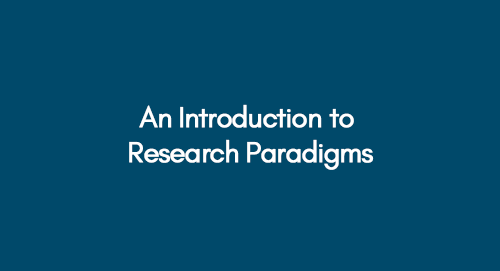
An Introduction to Research Paradigms: Understanding the Basics
May 15, 2023
Exploring Various Types of Dissertation
May 16, 2023Restating a thesis is often considered a complex job. The good news is that you need to come up with smart hacks to structure your thesis in a better manner.
Not only a well-structured thesis statement can help you convey your message effectively, but it also promotes better comprehensiveness. With proper formatting, positioning, and structure of a thesis, a reader is likely to grasp the idea within the first 4 seconds of reading the thesis.
Review Our Quality Dissertation Examples
Get Free 3+ Dissertation Topics Within 24 Hours
With that said, let's understand what it takes to restate a thesis that remains accurate and relevant till the end.
Step 1 Analyze the Original Thesis Statement
Proper Analysis is the key to identifying the loopholes in any thesis statement. If your original thesis statement looks incomplete or dull, repeat the initial research required for writing.
Below is a quick checklist to analyze your final thesis statement for better readability
- Identify the key ideas
- Repeat your arguments
- Present your claims
- Keep your focus in one place
- Always keep the central argument in focus
Step 2: Revise your Thesis Statement
Starting from the first thesis statement, it's a summary of your subject used to support the argument of the entire thesis.
It is the first thing a reader reads at the start of a thesis, also often considered the main idea of the essay.
How to Write A Thesis Statement? Expert Tips and Examples
The easiest way to restate a thesis is by replacing complex words with simpler nouns. Doing this work helps avoid repetition, captures the main idea of the thesis, and keeps things fresh.
To restate your thesis statement, pick one strong idea you would like to talk about in the entire thesis.
Step 3: Summarise the Main Points
Once you're done restating your thesis statement, the next step is to summarise all the other important points you're going to cover in the thesis.
Exploring the ideas will help you better convey your message in fewer words.
To summarise the main points, pick the central argument and brainstorm other related ideas that you can think of from the reader's perspective.
Summarize Well: How to Write a Good Executive Summary?
Step 4: Use Active Voice
Writing a thesis in Active voice makes it 10x more impactful than using passive voice. With a quick manual check, you can easily highlight sentences that can be changed into passive voice. Extract those abstracts and use a passive-to-active converter.
Step 5: Be Specific
Specificity is the key to a good thesis; nothing else can beat that. To be specific with your research, state strong points with references. Don't try to be vague or use fancy words that have a negative impact on the thesis.
Step 6: Build Connections
A thesis is a set of connected ideas collected to reinforce the central argument. Restating a thesis is another name for creating connections with main points.
Try to use more transitions that connect one paragraph to the other without killing the main crux of the idea.
However, make sure of the consistency so that it keeps the reader from the main idea.
Step 7: Give it a Final Thought
Adding a personal touch to your thesis statement can be the ultimate deal sealer.
After every paragraph, go through your thesis and make any changes required.
This step helps you add or subtract anything for a better restatement of your thesis.
At this point, you can also add CTAs, revise the final thoughts, shorten your concluding remarks, and add a small reflection paragraph at the end to summarise everything.
Step 8: Check for consistency
Consistency is a must-have for any thesis that has to be published online. Once you're done with your thesis, check for consistency if any paragraph of your thesis needs to be more consistent.
Some of the easy ways to make a thesis consistent are:
- Clearly state the focus of your essay.
- Use a parallel structure in your easy
- Try to add more verbs and only talk about the main point of your thesis.
- Use consistent terminology in the thesis that makes it easy for readers to understand.
- Take care of the formal tone of the essay. Avoid changing tone in between and stick to the same tone & voice for the entire thesis.
- Use traditions to feed the curiosity of your reader. Always look for ways to add logic and avoid complex terms that may confuse the reader.
Step 9: Write for the Audience
The main objective of a thesis is to inform the reader of the latest facts and updates about a topic or subject.
Take a moment to think of the language they would like to read. Keep the tone informative and friendly for better comprehension of the idea.
Make every sentence clear and complete so the reader doesn't have to research from external sources.
Step 10: Use Emoticons
Using the right emotions at the right place is key to attracting the reader in the first 10 seconds.
Whether you want to connect with the audience or reinforce the arguments for better understanding, using emotions is the key.
Ending with a Verdict
Though a research thesis doesn't allow an individual's opinion or interests, giving a neutral verdict, dissent sounds like a bad idea.
Some common examples of a verdict include.
- an ending statement that summarizes the whole idea of the thesis
- A Call to action or CTA that guides the readers on what to do next
- An unbiased recommendation discussed mutually in the thesis
- A reflection statement that describes the broader implications of the topic
Step 11: Edit, Format, and Publish
Like any content, your research thesis also needs to be revised during the final editing.
It's the time when you should edit the essay to ensure it's clear, complete, and error-free.
The good idea is to spare an hour to review any possible errors that may create an inconsistency with your content.
Once done editing, consider formatting the thesis in a way that looks read well. Avoid stuffing all the information in a single paragraph but try to break your idea into multiple sections.
Checklist for Restating a Thesis
- Be specific about the introduction and build arguments.
- Answer why, what, and how this research thesis is going to be helpful
- Choose a topic sentence that represents your thesis in less than 15 words
- Conclude the thesis to summarise the whole idea
- Offer new arguments and back them with factual information
- Try to convey more information in fewer words
- Draw a vision for the thesis before writing
- Focus on the goal and only give justification for that
- Don't hesitate to find and include new ideas in every paragraph
- Check the flow of the paragraph and delete any unnecessary information.
Acknowledgement for Thesis & Dissertation: A Guide on How to Write Acknowledgement for Dissertation
Questions to Ask Yourself Before Restating a Thesis
Unlike blogs or articles, a thesis is not just stuffing information into paragraphs, but it's more than that.
Before writing a thesis, make sure to ask yourself a few questions. Such ae
- Did I fulfil the goal of the thesis
- Have I solved the challenges for the reader
- Is it thesis specific for the target audience
- Does my thesis answer the what, why, and how to question
- Does my thesis have an impact on words
How to Know if Your Thesis is Strong
A strong thesis allows a better understanding of the idea discussed
While there are many ways to know if your thesis is strong, the easiest thing to do is review it yourself and ask a few questions.
- Have I constructed the thesis the right way?
- Have I created a connection between the A and B factor
- Have I made my thesis specific enough
- Does my thesis clarify all the objections?
- Does my thesis support the thesis or topic statement
- Is my thesis relevant to the reader's concern?
- Does my thesis propose a useful solution?
How to Improve Your Thesis?
Improving an existing thesis is not a hard nut to crack. All you need to do is run a few manual checks to ensure everything is in place.
Here are a few things you can do to improve your thesis
- Back with Strong Evidence
Having strong evidence is the only way to make your thesis effective.
Add evidence that makes sure your thesis is provable by evidence.
- Keep it Short and Precise
No one likes to read stacks of long paragraphs with overstuffed information. Try to keep your thesis strong, clear, and to the point.
Delete excess information that is of no use to the thesis.
- Focus on one Solution
A good thesis should not propose more than one solution to the reader. The simplest idea is not to give other distractions to the reader.
Stick to one idea and create more content that justifies the requirements.
Conclusion
Restating a thesis is not the hardest thing to o. With a small share of effort, you can easily manage to restate a thesis that doesn't seem repeated, arguable, or reinforced.
Your thesis should work around one idea or central argument only.
The process needs careful Analysis, attention to detail, and an in-depth understanding of the audience.
Start by restating your thesis statement and try to retain the original essence of your thesis without any repetition or forceful reinforcement.
FAQs about Restating Your Thesis
Get 3+ Free Dissertation Topics within 24 hours?
























